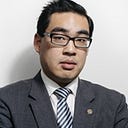POLARIZED LENSES:
9/11, Charlottesville, and How Right & Left Replaced Right & Wrong
Last year, on the fifteenth anniversary of the tragic attacks on September 11th, a newly-installed president of a small liberal arts college in Pennsylvania decided to end the campus’s fifteen year tradition of remembrance. Both the campus’s College Republican and College Democrat chapters called out their new president, but some felt compelled to add a secondary warning: that while it is important to remember the tragic events and lives lost on that fateful day, there were also other victims of 9/11 — those who have faced racial profiling, Islamophobia, and the like in the years since.
This is an increasingly common theme each year on the anniversary of the September 11th terrorist attacks. A quick glance at my social media feeds on 9/11 over the years reflect this growing sentiment. Heartfelt prayers and well wishes from still-pained hearts in the early 2000s have given way to holier-than-thou reminders that another side exists that has suffered just as much, if not more, than the families of those who perished a decade and a half ago. Recent years have seen calls for a cessation in 9/11 remembrances on the grounds that such remembrances are nothing more than an excuse for discrimination. Still others have taken to claiming that the United States brought the attacks on itself due to an offensive foreign policy.
In much the same way, the two-sides narrative surfaced again in President Trump’s now infamous remarks following the white supremacist rally in Charlottesville, Virginia earlier this year. As white supremacists paraded the streets carrying tiki torches and chanting Nazi chants, the President of the United States found a way to spread the blame, as if there could exist any situation where a neo-Nazi uprising might be an appropriate response.
Ironically, many found themselves switching sides on the two-sides narrative from one issue to the next. Many progressives who have proposed alternative narratives to 9/11 have been quick to condemn such equivocation in Trump’s Charlottesville response. Similarly, many conservatives who have been quick to defend Trump’s two-sides narrative are outraged by the same narrative when the topic moves from Charlottesville to 9/11. Each may point to the gravity of the respective events — or a host of other reasons — as reason for their equivocation, but, regardless of excuse, there remains an inability merely to condemn what is wrong.
Driving this seeming need for equivocation is the replacement of right and wrong with notions of right and left. Moral responsibility has given way to political expediency, as we carefully tailor our comments and select our outrage — not to condemn a wrong, but to make a point. Lost in this increasing politicization, and subsequent polarization, is the reality that neither truth nor virtue is subject to the whims of politics. As a result, we have also lost our ability to praise right and condemn wrong without equivocation or, at least, further explanation.
“Nothing is politically right which is morally wrong.” This age-old adage, widely attributed, serves as a stark reminder today. Our inability to condemn wrong without the refrain of “others do it too!” is a grave warning against the politically-colored lenses with which we view the world today. It is incumbent on us to shed the polarization and to see right and wrong instead of right and left. After all, truth is not partisan and moral responsibility knows no party lines.
SAMUEL CHEN is the founder and principal director of The Liddell Group, an innovative strategy firm specializing in politics, policy, and communications. He is a former aide on both the United States Senate and House of Representatives and completed his graduate studies at the J.M. Dawson Institute for Church-State Studies at Baylor University.
